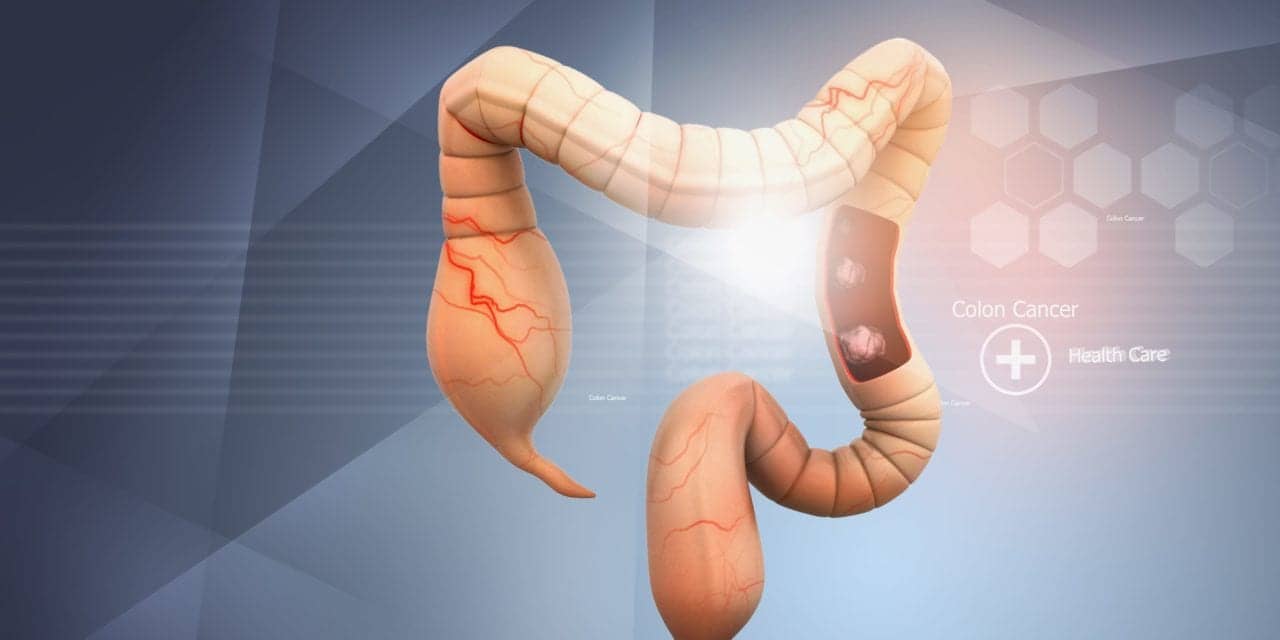Guardant Health, a precision oncology company, announced today positive results from ECLIPSE (short for “Evaluation of ctDNA LUNAR Assay In an Average Patient Screening Episode”), an over 20,000 patient registrational study evaluating the performance of its blood test for detecting colorectal cancer (CRC) in average-risk adults.
The test demonstrated 83% sensitivity in detecting individuals with colorectal cancer. Specificity was 90% in both individuals without advanced neoplasia and in those who had a negative colonoscopy result. This test also demonstrated 13% sensitivity in detecting advanced adenomas. Based on these study results, Guardant Health plans to complete its premarket approval submission to the U.S. Food and Drug Administration (FDA) in the first quarter of 2023. These results exceed the performance criteria set forth by the Centers for Medicare & Medicaid Services (CMS) for reimbursement.1
Colorectal Cancer Study Details
In this study, two configurations of a multimodal blood-based screening test were evaluated independently—a cell-free DNA (cfDNA)-only test and a cfDNA test with protein biomarkers. The announced results were derived from the cfDNA-only test, which outperformed the cfDNA test with protein biomarkers.
In addition to the strong clinical performance, blood-based screening has been shown to significantly enhance adherence to CRC screening in a real-world setting. Among the initial 8,000 individuals for whom the test was ordered during a routine visit with their physician, 90% completed the test.2 This is in stark contrast with adherence rates ranging from 43%3 to 66%4 for other non-invasive stool tests. Screening rates remain stagnant and well below the Centers for Disease Control and Prevention’s goal of 80%.5
“Over 49 million eligible people in the U.S. remain unscreened for colorectal cancer. We are confident that a high-sensitivity blood test can play a critical role in improving screening adherence rates by offering an accurate and convenient blood test to those reluctant to get screened,” says AmirAli Talasaz, Guardant Health co-CEO. “These results demonstrate, for the first time, that a blood test can indeed achieve high-sensitivity detection for colorectal cancer, a disease that was thought to be difficult to detect in blood. And as groundbreaking as these results are, colorectal cancer is just the beginning. Fueled by this success, we will expand this test to detecting many other cancer types, including lung cancer, the leading cause of death from cancer.”
By providing accurate and convenient screening via a simple blood draw, the company’s blood-based screening test has the potential to significantly improve screening rates and help save lives.
“Colorectal cancer is curable if detected early, but rates of adherence to screening remain too low with current screening options. There is a significant unmet need for a convenient, highly accurate screening test to improve these rates,” says Daniel Chung, MD, gastroenterologist at Massachusetts General Hospital and professor of medicine at Harvard Medical School. “The topline results from ECLIPSE are very encouraging and support the use of a blood-based test as a screening option that has the potential to dramatically improve colorectal cancer screening rates by overcoming barriers associated with current testing methods.”
References
- Centers for Medicare & Medicaid Services. Screening for Colorectal Cancer – Blood-Based Biomarker Tests (CAG-00454N). CMS.gov website. Accessed December 14, 2022. https://www.cms.gov/medicare-coverage-database/view/ncacal-decision-memo.aspx?proposed=N&NCAId=299
- Based on internal data derived from the company’s Shield test.
- Cancer Prevention Research. Impact of Patient Adherence to Stool-Based Colorectal Cancer Screening and Colonoscopy Following a Positive Test on Clinical Outcomes. https://aacrjournals.org/cancerpreventionresearch/article/14/9/845/666815/Impact-of-Patient-Adherence-to-Stool-Based
- Journal of Clinical Oncology. Cross-sectional adherence with the multitarget stool DNA test for colorectal cancer screening in a large, national study of insured patients. https://ascopubs.org/doi/abs/10.1200/JCO.2021.39.3_suppl.27.
- Centers for Disease Control and Prevention. The Health and Economic Benefits of Colorectal Interventions. https://www.cdc.gov/chronicdisease/programs-impact/pop/colorectal-cancer.htm. Accessed November 28, 2022.





